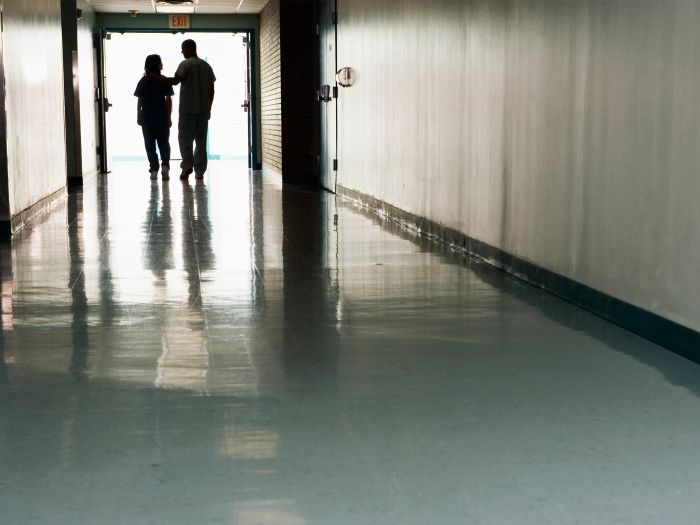Just over 125 of 100,000 people in the U.S. will have a bypass procedure.
5:00 AM
Author |

The use of cannabis may have a negative impact on outcomes for a common bypass surgery, a study suggests.
Researchers at Michigan Medicine analyzed more than 11,000 cases from the Blue Cross Blue Shield of Michigan Cardiovascular Consortium, known as BMC2, to review patient cannabis use and postoperative outcomes for lower extremity bypass after 30 days and one year. The minimally invasive procedure, also called a peripheral artery bypass, involves detouring blood around a narrowed or blocked artery in one of the legs with a vein or synthetic tube.
Results published in Annals of Vascular Surgery reveal that patients who used cannabis prior to lower extremity bypass had decreased patency, meaning the graft had a higher chance of becoming blocked or occluded, and were 1.25 times more likely to require amputation one year after surgery. Cannabis users were also 1.56 times more likely to use opioids after discharge.
"The findings show a need for screening for cannabis use and open conversations between patients and clinicians to help inform preoperative risk assessment and decision-making for lower extremity bypass," said senior author Peter Henke, M.D., FACS, FAHA, director of the University of Michigan Health Frankel Cardiovascular Center and director of BMC2 Vascular Surgery.
"While its exact mechanisms are unclear, cannabis and its active compounds play a role in platelet function and microcirculation that may lead to decreased rates of limb salvage after lower extremity bypass," Henke said.
Around 43% of individuals in the United States and Canada have used cannabis. Previous studies suggest cannabis use has effects on the cardiovascular system, including increased risk of heart attack and stroke. However, it was not associated with stroke or heart attack after lower extremity bypass for patients in the study.
While future study is needed to further understand cannabis' full effect on outcomes, researchers note, the findings will help clinicians counsel patients who are undergoing vascular surgery.
"While past studies on the effects of cannabis use on pain response suggested an increase in pain tolerance after smoking cannabis, our studies and other contemporary findings show the opposite," said Drew Braet, M.D., first author and integrated vascular surgery resident at U-M Health. "Given the increase in cannabis use and abuse in conjunction with the opioid epidemic, the results suggest a need for a better understanding of pain management for cannabis users who are having vascular surgery."
Additional authors include Jeremy Albright Ph.D., Craig Brown M.D., Nicholas H. Osborne M.D., all of Michigan Medicine.
Support for BMC2 is provided by Blue Cross and Blue Shield of Michigan and Blue Care Network as part of the BCBSM Value Partnerships program. Although Blue Cross Blue Shield of Michigan and BMC2 work collaboratively, the opinions, beliefs and viewpoints expressed by the author do not necessarily reflect the opinions, beliefs, and viewpoints of BCBSM or any of its employees.
Paper cited: "Impact of Cannabis Use on Outcomes after Lower Extremity Bypass," Annals of Vascular Surgery. DOI: 0.1016/j.avsg.2022.09.037

Explore a variety of healthcare news & stories by visiting the Health Lab home page for more articles.

Department of Communication at Michigan Medicine
Want top health & research news weekly? Sign up for Health Lab’s newsletters today!





